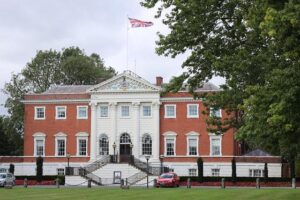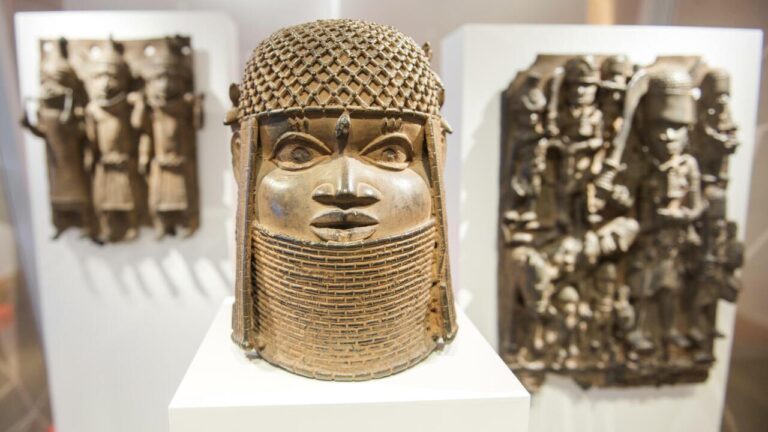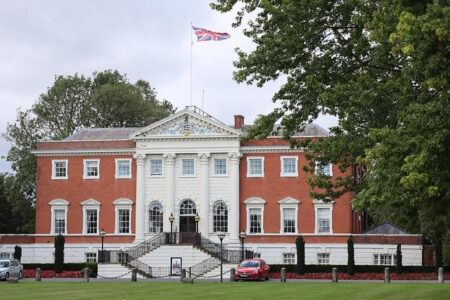Repatriating Benin Artifacts: U.S. Museums Address Colonial Legacies and Cultural Restitution
Ethical and Legal Complexities in Returning Benin Artifacts from U.S. Museums
American museums are increasingly grappling with multifaceted ethical questions and legal obstacles as they work toward the repatriation of Benin artifacts, many of which were seized during the 1897 British punitive expedition. Navigating a labyrinth of international laws, provenance verification challenges, and ownership disputes often slows the restitution process. Museums also face internal conflicts as they reconcile their historical acquisition practices with modern calls for justice and cultural equity, prompting intense discussions among curators, legal advisors, and community advocates.
Beyond legalities and ethics, several practical issues complicate repatriation efforts, including:
- Fragmented or missing historical documentation that hinders artifact authentication
- Diplomatic negotiations to ensure respectful and secure transfers
- Financial burdens related to conservation, transportation, and exhibition
- Meaningful engagement with Nigerian communities to honor cultural values and expectations
| Museum | Number of Benin Artifacts | Current Repatriation Status |
|---|---|---|
| Field Museum, Chicago | Approximately 150 pieces | Negotiations underway |
| The Metropolitan Museum of Art | Around 90 artifacts | Provenance under review |
| Smithsonian Institution | 110 items | Return timeline established |
The Rich Heritage and Enduring Influence of the Benin Artifacts
The Benin artifacts, originating from the historic Kingdom of Benin in present-day Nigeria, represent an extraordinary legacy of craftsmanship and royal symbolism. These objects, predominantly fashioned from brass, ivory, and wood, include detailed plaques, ceremonial masks, and sculptural figures that once embellished the Oba’s palace. Beyond their artistic mastery, these treasures offer invaluable insights into the political structure, spiritual beliefs, and societal organization of one of Africa’s most influential pre-colonial civilizations.
More than just exquisite art, these relics carry profound cultural resonance. For the Benin people and their descendants, the artifacts are sacred, embodying ancestral heritage and spiritual identity. The presence of these items in U.S. museums has intensified debates about colonial-era plunder and the moral imperative of restitution. Returning these treasures is seen as a vital step to:
- Address historical injustices stemming from the violent 1897 British expedition
- Restore rightful custodianship and support cultural regeneration within Nigerian communities
- Encourage global conversations about the colonial impact on museum collections worldwide
Strengthening Partnerships: U.S. Museums and Nigerian Authorities Collaborate
In recent years, American cultural institutions have deepened their engagement with Nigerian officials to facilitate the repatriation of Benin artifacts. These cooperative efforts are characterized by mutual respect and a shared vision for cultural restitution. Joint initiatives involving African heritage specialists and U.S. museum curators have included symposia, workshops, and strategic planning sessions aimed at establishing transparent and equitable repatriation protocols. This partnership not only focuses on returning looted objects but also seeks to build enduring educational and cultural ties between the two regions.
Key aspects of this collaboration encompass:
- Forming binational provenance research teams to authenticate artifact histories
- Organizing collaborative exhibitions that celebrate Benin’s artistic heritage during repatriation negotiations
- Developing formal agreements that specify timelines and legal frameworks for returns
- Supporting Nigerian museums with training and resources for artifact preservation and display
| Organization | Role in Repatriation | Current Status |
|---|---|---|
| Smithsonian Institution | Artifact provenance research and logistics coordination | In progress |
| Nigeria’s National Commission for Museums and Monuments | Authentication and cultural validation | Advanced stage |
| University of Benin | Academic advisory and research support | Active involvement |
| Field Museum, Chicago | Public education and community outreach | Initiated |
Advocating for Open Provenance Research and Restorative Justice
For repatriation efforts to be genuinely ethical and effective, museums must commit to transparent provenance research that is accessible to the public and regularly updated. This requires collaboration among historians, local communities, and international experts to meticulously trace each artifact’s history and ownership. Establishing comprehensive, open-access databases will empower scholars and the public, fostering an environment of accountability and respect for cultural heritage. Transparency also involves confronting past research gaps or concealments, thereby rebuilding trust with source communities.
Moreover, restorative justice must prioritize the active involvement of Benin descendants, ensuring their voices guide decisions about their cultural patrimony. Beyond returning objects, this approach includes educational initiatives, capacity-building programs, and co-curated exhibitions that honor the artifacts’ cultural and historical significance. The following table outlines essential components for successful restorative justice frameworks:
| Key Element | Description | Expected Outcome |
|---|---|---|
| Community Engagement | Inclusive participation of Benin descendants in decision-making | Empowerment and cultural revitalization |
| Legal Clarity | Defined policies and frameworks guiding restitution | Fairness and accountability in repatriation |
| Educational Programs | Initiatives that contextualize historical and cultural narratives | Increased public understanding and respect |
| Sustainable Partnerships | Long-term collaboration between museums and source communities | Ongoing preservation and cultural exchange |
Final Thoughts: Toward a More Equitable Future in Museum Practices
As American museums increasingly confront the enduring consequences of colonial-era plunder, the movement to repatriate Benin artifacts represents a pivotal moment in addressing historical wrongs and fostering global cultural respect. Although the path to restitution is fraught with legal, ethical, and logistical challenges, these initiatives demonstrate a growing dedication to cultural justice and the rightful restoration of heritage. The evolving dialogue between U.S. institutions and Nigerian authorities exemplifies a broader transformation within the museum sector—one that promises to redefine how cultural artifacts are stewarded and shared worldwide.







